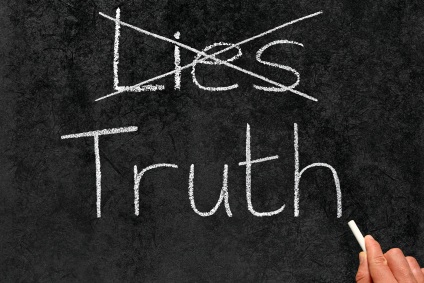Comfortable Enough to Curse? Think Again!
Business relationships are special. They are constantly fragile, but durable enough to ward off competition. No matter what happens in your business relationship, and no matter how close they feel, don’t forget that you are always safer keeping your language on the formal side. Yes…I am saying that you never know what might offend someone. Sales professionals are notorious for dropping an ‘F-Bomb’ in the heat of a conversation. Is it worth it?
_____________________
Business and personal sales requires that a sales professional builds and cultivates relationships. That position plays the role of relationship manager. All other relationships pivot on the relationship that the sales professional generates. For those who have sold for years, you know all of this. Much of this post is for our younger sales professionals.
As relationship manager, it is obvious that each relationship will be different, and will vary in depth. That is the way relationships work in business and in personal life. We all believe that we evaluate our relationships carefully, yet that evaluation comes with our own judgmental biases and perspectives.
The comfort of a relationship can lead us to speak and act in ways that are too casual. I am speaking of the usage of slang and colloquial terms and phrases in your business relationships, as well as on the job in your own workplace.
Your Customer
If you are a Black sales professional, it is most likely that your customer and you coworkers come from a totally different background than you. Life experiences buildperceptions (Remember the 3Ps, Perceptions, Preference, Prejudice and Your Customer – Black Sales Journal 12/27) which one carries until they are ready to give them up. The danger of slang in a business relationship is that you do know when a word or phrase validates a perception that a buyer might have.
This does not mean that you cannot say all slang, yet slang that is culturally significant when you are still in the relationship building stage could be unacceptable. I will admit to my guilt in using culturally biased slang with some customers. Usually it was long, well developed relationships where I exercised that ‘privilege’. The length of some of those relationships was decades, and I was well familiar with their views, and the customer with mine. I was lucky, and still probably should have been a little more antiseptic.
Is This a Big Issue?
I don’t think this is a big issue, yet for some of our emerging talent, it should be heard. Forming relationships is hard work. You need consistency and some personal protocol. This is one of those things that must be remembered.
We all have a way of feeling comfort. It can be a review of your relationship with a customer, or having the strength of a relationship confirmed by a new large order. If you are wrong in your level of comfort you might seem crass, or you might spark something that chips away at a relationship.
Culturally biased slang includes language that in the Black community would not necessarily be offensive, yet we are not often selling to the Black community. Even when we are, we want to have a solid idea of who our customer is, and what our boundaries are. I suggest that it is easier to be in a business mode, and not take the risks unless you are certain of your customer and your relationship.
Your Work Environment
The work environment is a territory that you will know better than your customer. Even in this territory, you should recognize the limitations that you should impose on yourself. The workplace should always be considered “foreign” territory. A familiar place for doing what you do to earn money, and make a career, yet a place that quite often has a set of rules that you have become comfortable with, even if your coworkers are barely comfortable with you.
None of this is bad at all. Being at work is earning a living. I had the fortune of working at a place that accepted my cultural differences and allowed me to grow. All places don’t offer that haven, so your judgment is important here.
I was not the first Black sales professional that worked there, yet I was their first Black sales manager. By the time I worked in that role, there were things that I said that I wish I could have taken back. I learned on the job, and learned the hard way. We all will not work for a solid and forgiving organization.
If you follow the same rules that you should use with customers at your job, you will never lose. It will be easy to remember, and you will not turn anyone off. Remember, taking back things you have uttered is like trying to “put toothpaste back in the tube.”
A Simple Example
Many years ago I was on a sales call with a sales professional who the customer told some difficult news, to which he uttered “That Sucks!” Think about that comment, and apply it to business relationships 12 years ago when it was even more sensitized. The response from the customer was a face that I interpreted as being taken aback.
Now, quite frankly, there were many words that could have been used there, yet the one that came to mind did not sit well with the buyer, who was an older female. When we left the call and were in the parking lot, I coached that this was not an appropriate comment. I believe it was for laughs to a degree as there were several people in the room, yet that only means that there could have been several people offended (I don’t believe there were, yet our buyer appeared to be).
I believe that the sales rep took it to heart and appeared very professional in other calls. I also believe that he apologized to the buyer who quickly stated that it “was fine.” Fact is that it should not have been done.
How About Profanity?
I once had a manager who could use profanity, and no one ever seemed bothered by it. Now, I don’t know if they were, as I was not polling, yet there were never any repercussions. He was well accepted, and had a way about how he did it that desensitized. I never felt I would have been that blessed.
The fact is that Black professionals should be careful about using profanity for more reasons than I could list in this journal. It is easier to keep it clean, and be expressive and emphatic. I believe there is no place for it in our day-to-day public image with the customer or employer.
Remember to always be the consummate professional.
We welcome your comments
 February 12, 2015
|
Posted by Admin9!
February 12, 2015
|
Posted by Admin9!

 Categories:
Categories:  Tags:
Tags: 

Your Comments